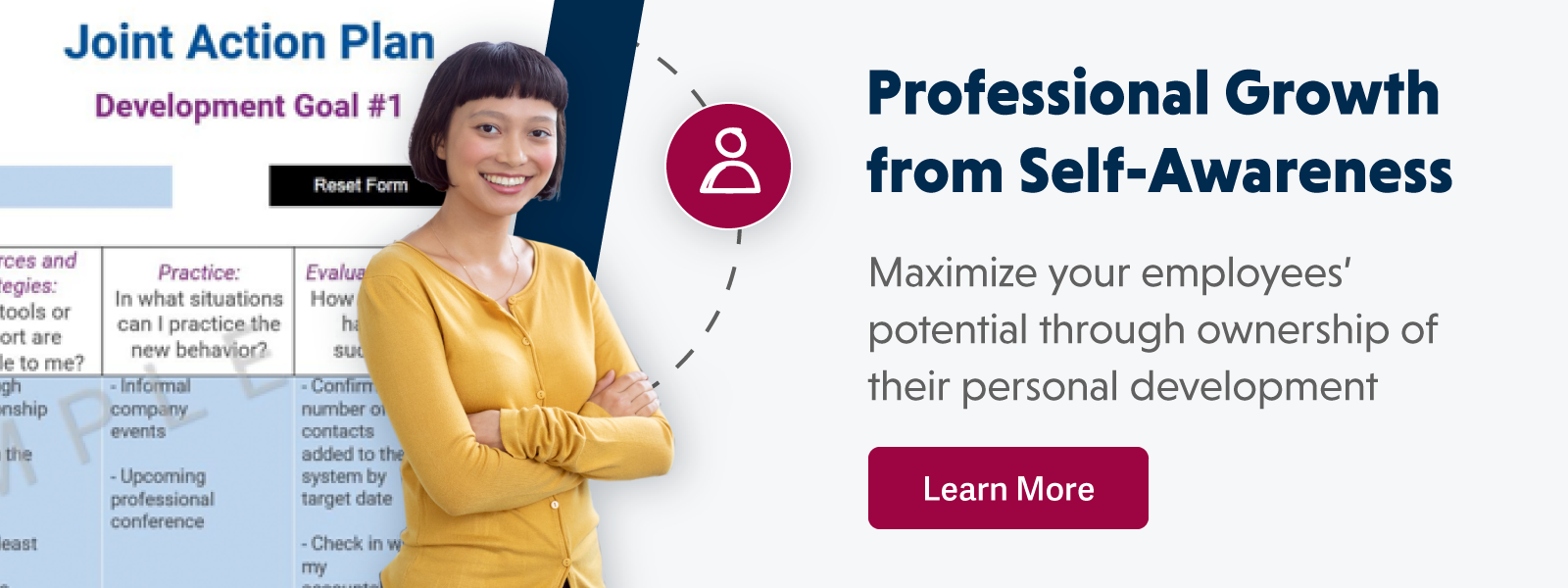Emotional Intelligence has been much discussed over the last decade. However, today it’s more imperative than ever for you and your organization’s leaders to understand its importance so you can apply it practically to your own professional lives and model it with the employees you lead and manage.
What is Emotional Intelligence:
In simple terms, Emotional Intelligence is how we manage ourselves and manage our relationships to be effective both personally and interpersonally. It’s helpful to envision Emotional Intelligence like a tree.
- The roots are our mindset/attitude; these ground us and how we perceive the world around us.
- The trunk is our feelings; these are more subject to outside forces.
- The leaves and branches are our actions, essentially, how our feelings are acted out on the world or, in some cases, ourselves.
How it works:
As you may have guessed, each of these impacts the other two; attitude is the most important component of Emotional Intelligence. When your attitude or mindset is suffering, impacted, or altered, your feelings and behavior are also affected.
One way to move your attitude and mindset in the right direction is in the word “mindfulness.” When you’re in a mindful state, you are much more likely to be aware of how your attitude, feelings, and thoughts impact your behavior toward others, ultimately affecting the outcome of your situation. As you can imagine, during a time of crisis and rebuilding, as we’re in now, any positive impact you or your colleagues or employees can have on one another can have ripple effects. The same holds for negative behaviors, emotions, and, obviously, outcomes.
It boils down to three simple steps:
- Be aware of your attitude and intent.
- Be aware of your and other people’s feelings.
- Choose how you behave!
Observe the difference between mindfulness and survival mode (a mode which many of us are currently operating within, naturally):
As you can see, there are benefits to the survival mode responses, but these will be short-lived. Having a survival mode or instinct helps us “survive” certain situations, but we must pivot quickly to mindfulness to scale that successfully.
#EmotionalIntelligence is how we manage ourselves and manage our relationships to be effective both personally and interpersonal. @CaliperCorp has advice on how to better your emotional intelligence in the workplace: Click To TweetGaining Control of Your Feelings
Once you’ve grasped the benefits of mindfulness and how it can impact you and those around you, it’s time to move the feelings portion of our triangle.
One way to keep a pulse on your feelings is by doing a daily emotional check-in. While this seems obvious, many of us neglect to focus on what and how we feel, especially during stressful or chaotic times. So take the time to notice how you are feeling and assigning your feelings a label. Use the diagram below to help you identify your feelings and coach your employees and colleagues on their identification checks.
What is the goal of these identification exercises? Well, once you know what you are feeling and can see where it fits on the spectrum, you can work to:
Calm heightened emotions using techniques like breathing, grounding, and relaxation techniques. Scan your body and how you feel. Are there any areas of stress, how is your breathing, is there concentrated pain anywhere?
Create positive emotions by asking yourself what is going well (or has gone well), identifying what you are proud of, focusing on the good things around you, and creating opportunities for fun and laughter in your life.
Attitude Matters
Attitude and mindset, as we discussed, are the basis for all that follows. So let’s discuss what we mean by mindset. Well, it’s how we feel about ourselves and others. Having a clear view of this can help us spot opportunities and avoid self-defeating cycles.
One tool to ensure we don’t fall victim to self-defeating cycles is to simply recognize the space between your emotion (we cannot always control this) and your response (this is something we can control.) How?
Envision the outcome you want in the situation and work backward into goals and appropriate responses.
Another tool in your arsenal is the ability to recognize your intentions and the intentions of others. Remember what’s important to you and connect to your sense of purpose. Here are ways to remove conditional self-regard.
- Be Perfect – Antidote: You are good enough.
- Be Strong – Antidote: You can ask for help. You can show your feelings and be vulnerable.
- Please Others – Antidote: Please yourself too.
- Try hard, but don’t succeed – Antidote: Believe in yourself.
- Hurry up! – Antidote: Take your time.
These techniques help you control your emotions and, in turn, your responses. But in interpersonal exchanges, it’s crucial to view others in high regard. Doing this is surprisingly simple:
- See their humanness. Recognize their humanity and activate empathy.
- Communicate in a way that shows you care. In written communication, much can be lost, and for some exchanges, that is not the best option.
“People don’t remember what you did or what you said…but they always remember how you make them feel.” – Maya Angelou
Staying Well in a Crisis
Emotional Intelligence serves an even higher purpose during times of crisis. You and your colleagues need to recognize your own emotions and identify them, and that’s very difficult if your emotional and physical health is suffering. EI requires leaders to understand what human needs aren’t being met in their workforce.
While it’s true, we must be aware of all of the above human needs in our own lives and the lives of our employees; there are simply some things we can’t control. To empower ourselves and those we work with, limit the focus to the things we can influence. Once you’ve identified the places where you can make a change, take action to give yourself some certainty during difficult times.
Need your relationship to be more supportive? Be clear about what you need in your relationship conversations and ask other people what they need from you.
Understand what you need from your relationships to support you in this time, and ask what people need from you to fulfill interpersonal needs and improve relationships. Get more #emotionalintelligence tips and insights from @CaliperCorp Click To TweetPhysical needs also impact our attitudes, emotions, and reactions. The good news is we’re far more likely to be able to control how we feel physically. Follow these rules to ensure your physical health doesn’t impact your mindset.
- Get enough sleep (no news before bed, stick to a schedule, avoid food or drink that will keep you awake.)
- Move your body around (stretch, take a walk, integrate movement into your routine.)
- Think about your physical environment’s impact and how it makes you feel (remove clutter, add a lamp, plants.)
- Look after your body and your brain. Part of this is eating correctly and learning how to turn things off.
Emotional Intelligence can help us manage ourselves better and impact our interpersonal relationships. Our mindset grounds us and is closely linked to our physical and emotional leads. Our feelings are more subject to outside forces but can be impacted by identifying those feelings, calming any heightened emotions, and creating more positive feelings. Finally, we touched on how our actions are the determining factor influencing outcomes. Put another way, our feelings are acted out on the world or, in some cases, ourselves.
This isn’t all there is to learn regarding Emotional Intelligence. In our next blog, we’ll discuss:
- The secret to active listening
- How values can strengthen your ability to control outcomes
- The power of a team that understand Emotional Intelligence


